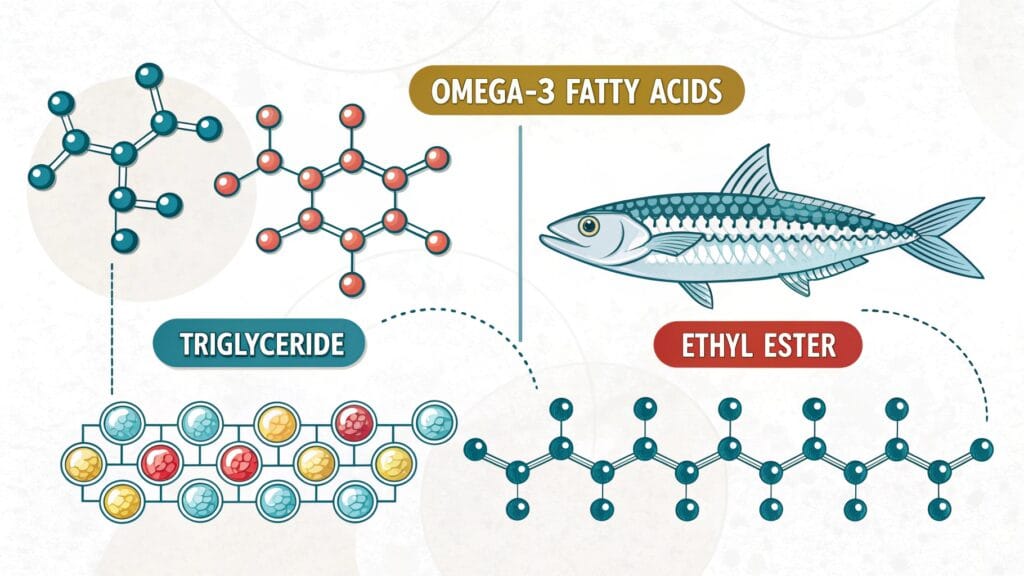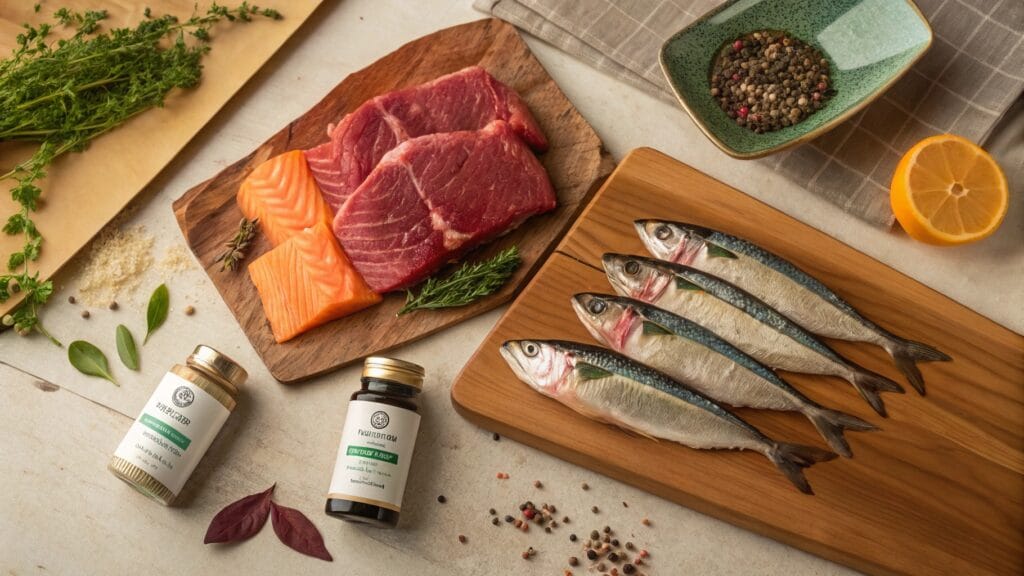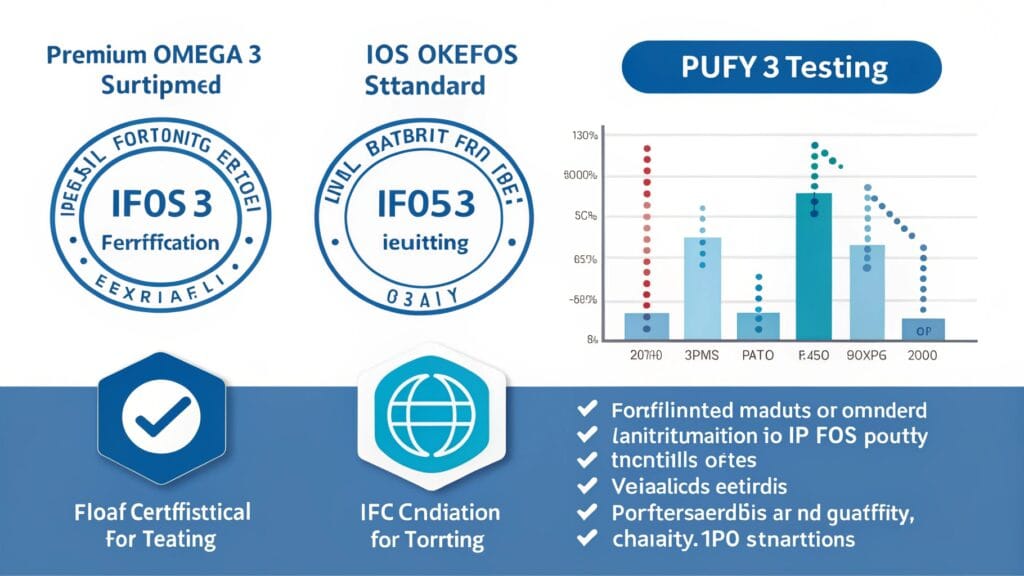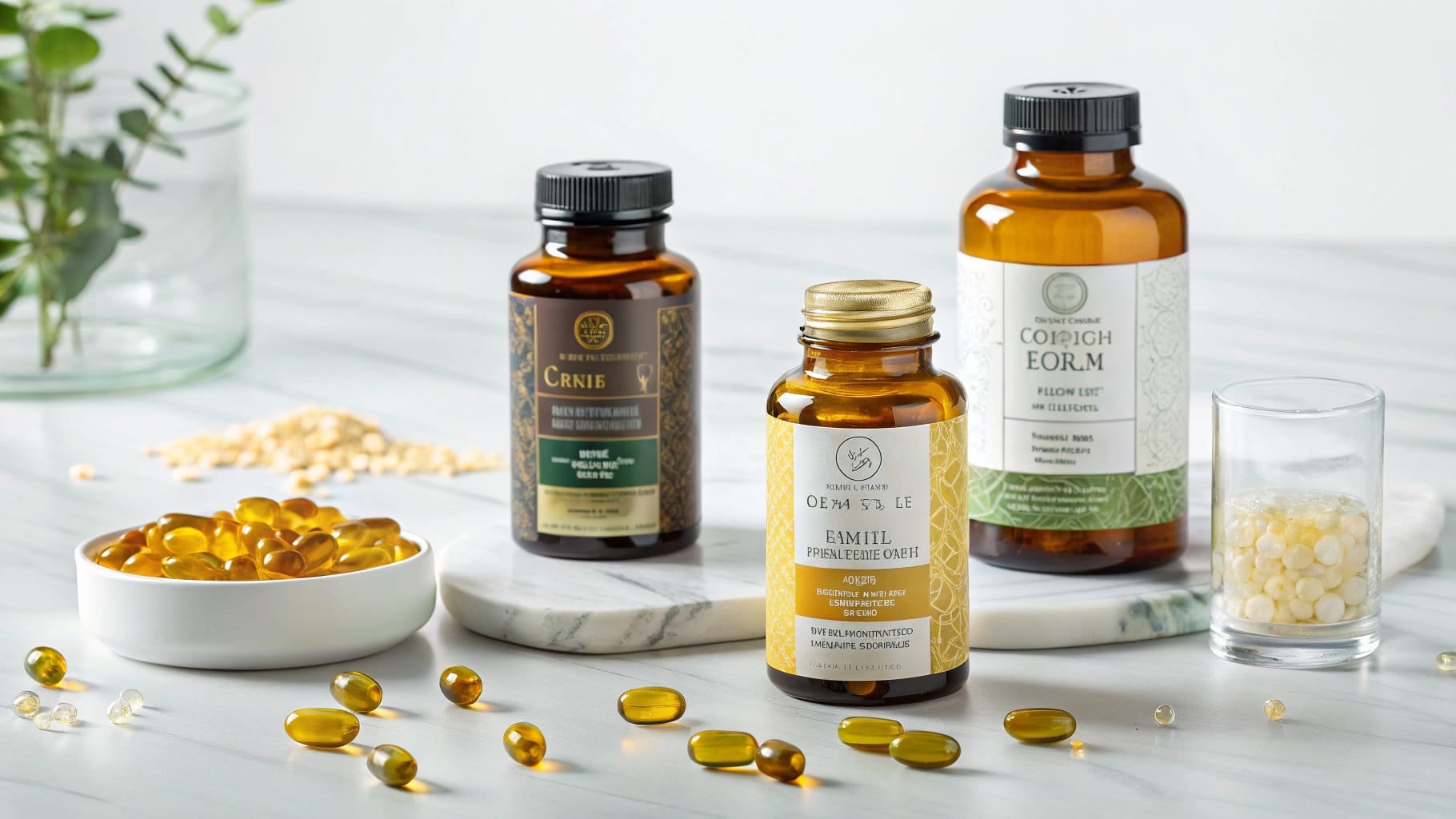Choosing the Best Omega 3 for Keto & Carnivore: Quality, Forms, & Our Recommended Brands
Ready to choose The Best Omega 3 supplement that works with your carnivore or keto lifestyle? You’ve come to the right place.
If you’ve been following a low-carb or animal-based diet, you’ve likely already learned about the critical importance of omega-3 fatty acids for brain health, cardiovascular function, and managing inflammation. Perhaps you’ve even noticed some signs of omega-3 deficiency despite your careful food choices.
While getting nutrients from whole foods is always ideal, consistently obtaining optimal omega-3 levels solely from diet can be challenging—even on a carnivore or keto diet. This is where supplementation becomes a valuable tool in your metabolic health toolkit.
But here’s the challenge: The omega-3 supplement market is vast and confusing, with quality that varies dramatically between products. With hundreds of options available, how do you know which ones actually deliver the benefits you’re seeking?
This guide cuts through the confusion. We’ll show you exactly what to look for in a top-tier omega-3 supplement for your low-carb lifestyle and recommend our top picks based on strict quality criteria. You’ll learn about crucial quality factors, different supplement forms, how to choose the right one for your needs, and specific product recommendations that meet our rigorous standards.
Before diving into supplements, make sure you understand the importance of omega-3s, the omega-3:6 balance, and dietary sources available on a low-carb diet. Read our comprehensive guide: Omega-3 on a Carnivore Diet: Sources, Benefits, and Why It Matters.
Table of Contents
Why Supplement? A Quick Recap
Even with the most carefully planned carnivore or keto diet, omega-3 supplementation often becomes necessary. Unless you’re consuming fatty fish like salmon, mackerel, or sardines multiple times weekly, reaching optimal EPA and DHA levels can be difficult through diet alone. Grass-fed ruminant meats provide some omega-3s, but primarily in the form of ALA, which converts inefficiently to the crucial EPA and DHA forms your body needs most.
Supplementation can help ensure you get enough EPA and DHA, especially if you’re not regularly consuming fatty fish, to avoid omega-3 deficiency symptoms and support overall health.
What to Look For: Essential Quality Criteria
Not all omega-3 supplements are created equal. Here’s what separates premium products from substandard ones:
Concentration (EPA + DHA)
When evaluating any omega-3 supplement, look specifically for the amounts of EPA (eicosapentaenoic acid) and DHA (docosahexaenoic acid) per serving—not just “total omega-3s.” These two fatty acids provide the most significant health benefits and should be clearly listed on the label.
A quality product will typically provide at least 1000-1500mg of combined EPA+DHA per daily serving, though therapeutic doses may need to be higher. Lower doses may require taking multiple servings to reach effective levels.
Purity & Third-Party Testing
This is perhaps the most crucial factor when selecting an omega-3 supplement. Fish and marine oils can potentially contain environmental contaminants like heavy metals (mercury, lead), PCBs, and dioxins. Additionally, these oils are highly susceptible to oxidation (becoming rancid), which can actually cause more harm than good.
Look for products that undergo rigorous third-party testing, with IFOS (International Fish Oil Standards) certification being the gold standard. IFOS tests products for:
- Contaminant levels (heavy metals, PCBs, dioxins)
- Oxidation/rancidity markers (peroxide value, anisidine value, TOTOX)
- Potency verification (confirming EPA/DHA levels match label claims)
Companies that display their test results publicly demonstrate confidence in their quality control processes.

Form (Triglyceride vs. Ethyl Ester)
Omega-3 supplements come in different molecular forms, with significant differences in absorption and bioavailability:
- Triglyceride Form: This is omega-3s’ natural form as found in fish. Research suggests it offers superior absorption (up to 70% better) and bioavailability compared to ethyl ester forms.
- Ethyl Ester Form: Many fish oil supplements use this synthetic form, which is created during processing. While less expensive to produce, it requires more digestive steps for absorption and may cause more digestive discomfort.
- re-Esterified Triglyceride (rTG): This premium form undergoes additional processing to convert ethyl esters back to triglycerides, offering enhanced absorption while maintaining high purity. These supplements typically cost more but provide superior value.
For optimal results, prioritize products in triglyceride or re-esterified triglyceride form.
Freshness (Oxidation)
Rancid omega-3 supplements are not just ineffective—they can actually increase inflammation and oxidative stress, counteracting the very benefits you’re seeking. Signs of a fresh, high-quality product include:
- No fishy burps or aftertaste (a common sign of rancidity)
- Addition of antioxidants (like vitamin E/tocopherols) to protect the oil
- Opaque, oxygen-resistant packaging
- Nitrogen flushing during packaging (removes oxygen that causes oxidation)
- Low TOTOX (total oxidation) scores when tested
Premium brands will often list their TOTOX values or make their oxidation test results available to consumers.
Sourcing
The source of omega-3s matters for both purity and sustainability reasons:
- Smaller fish (anchovies, sardines, mackerel) generally accumulate fewer environmental contaminants than larger predatory fish
- Wild-caught sources typically have better omega-3 profiles than farmed sources
- Sustainable fishing practices ensure continued availability of these beneficial nutrients
Look for brands that provide transparency about their sourcing practices and choose those committed to sustainable fishing methods.
No Unnecessary Additives
For those following carnivore or keto lifestyles, avoiding fillers, sugars, and artificial ingredients is particularly important. Watch out for:
- Added sugars or sweeteners (especially in gummies or flavored liquid products)
- Artificial colors or flavors
- Unnecessary fillers or binding agents
- Plant-derived additives (if following a strict carnivore protocol)
The cleaner the ingredient list, the better—especially for those following restrictive dietary protocols.

Choosing the Right Form for You
Omega-3 supplements come in several different forms, each with distinct advantages and disadvantages:
Capsules/Softgels
Pros:
- Convenient and portable
- No taste or smell when fresh
- Precise, consistent dosing
- Longest shelf stability
Cons:
- May require taking multiple pills for therapeutic doses
- Some contain unnecessary additives in the capsule material
- Less ideal for those with difficulty swallowing pills
Best for: Most adults seeking convenience and precise dosing.
Liquid Oil
Pros:
- Higher doses can be achieved with less volume
- Adjustable dosing according to needs
- Often better absorption due to direct contact with digestive enzymes
- No capsule ingredients to worry about
Cons:
- Fishy taste can be off-putting (though high-quality oils have minimal taste)
- Higher oxidation risk once opened
- Requires refrigeration after opening
- Less convenient for travel
Best for: Those needing higher therapeutic doses or who prefer avoiding capsules.
Gummies
Pros:
- Most palatable option, especially for those who dislike fish taste
- Easy alternative for those who struggle with pills
- Convenient for travel
Cons:
- Usually contain sweeteners or additives incompatible with strict keto/carnivore
- Typically provide lower EPA/DHA concentrations than other forms
- Often require multiple gummies to reach therapeutic doses
- Higher risk of degradation due to manufacturing process
Best for: Those who absolutely cannot tolerate other forms or parents looking for kid-friendly options (with careful attention to sugar content).
Other Forms
Krill Oil:
- Contains omega-3s in phospholipid form, which some research suggests may offer enhanced absorption
- Includes astaxanthin, a powerful antioxidant that protects the oil from oxidation
- Typically contains lower EPA/DHA concentrations than fish oil, requiring larger doses
- Often more expensive per gram of EPA/DHA than quality fish oil
Algae Oil:
- The only truly vegan source of preformed EPA and DHA
- Sustainable and free from concerns about ocean contaminants
- Often more expensive and may contain lower EPA/DHA concentrations
- May be an option for pescatarians on otherwise animal-based diets
Our Best Omega 3 Supplement Recommendations
After extensive research analyzing quality criteria, ingredient profiles, third-party testing, and suitability for low-carb and carnivore lifestyles, here are our top picks:
Best Overall: Nordic Naturals Ultimate Omega
Why we love it:
- Premium triglyceride form for superior absorption
- 1100mg combined EPA+DHA per serving
- IFOS certified with exceptionally low oxidation values
- Transparent testing results available online
- Sustainably sourced from wild Arctic cod
- No fishy aftertaste or burps
- Clean ingredient profile suitable for strict keto/carnivore
Nordic Naturals has built its reputation on exceptional quality control and transparency. Their Ultimate Omega product delivers a potent dose of highly bioavailable omega-3s with third-party verification of both potency and purity. The lemon-flavored softgels effectively prevent fishy aftertaste without adding problematic ingredients.
Form: Softgels (2 per serving)
Best High-Potency Option: Carlson Elite Omega-3 Gems
Why we love it:
- Exceptional potency with 1600mg EPA+DHA per serving
- Triglyceride form for optimal absorption
- Independently tested for freshness, potency, and purity
- Sourced from deep, cold-water fish (anchovies and sardines)
- Contains added natural vitamin E for freshness
- Lemon flavor eliminates fishy taste without artificial flavoring
Carlson Labs has been specializing in omega-3 supplements for decades, and their Elite Omega-3 Gems offer one of the highest EPA+DHA concentrations available in a consumer product. This makes it ideal for those seeking therapeutic effects or looking to maximize benefits while minimizing pill count.
Form: Softgels (1-2 per serving depending on needs)
Check Price on Amazon | Buy Direct from Carlson
Best Liquid Option: Pure Encapsulations Liquid EPA/DHA
Why we love it:
- 1500mg EPA+DHA per teaspoon
- Triglyceride form for superior absorption
- Natural lemon flavor masks fish taste effectively
- Free of artificial additives and common allergens
- Nitrogen-flushed bottling to prevent oxidation
- Third-party tested for heavy metals and environmental contaminants
Pure Encapsulations maintains pharmaceutical-grade manufacturing standards, making their liquid EPA/DHA formula an excellent choice for those who prefer liquid supplementation or need the flexibility of adjustable dosing. The natural lemon flavor makes it surprisingly palatable even for those sensitive to fishy tastes.
Form: Liquid (1 teaspoon per serving)
Best for Carnivore Purists: Ancestral Supplements Wild Caught Fish Eggs
Why we love it:
- Whole-food based omega-3 supplement derived from wild-caught fish roe
- Contains the complete spectrum of omega-3s in their natural ratios
- Includes naturally occurring co-factors and enzymes
- Freeze-dried to preserve nutritional integrity
- Zero additives, fillers, or processing agents
- Fully compatible with strict carnivore principles
For those following a nose-to-tail carnivore approach who prefer whole-food supplements over isolated nutrients, Ancestral Supplements provides a unique option. Their Fish Eggs capsules deliver omega-3s alongside naturally occurring vitamins, minerals, and co-factors as found in fish roe.
Form: Capsules (6 per serving)
Best Budget Option: Sports Research Triple Strength Omega-3
Why we love it:
- Excellent value without compromising essential quality metrics
- 1250mg EPA+DHA per serving in triglyceride form
- IFOS certified for purity and potency
- Made from wild-caught, sustainably harvested small fish
- Added vitamin E for freshness protection
- Clean ingredient profile suitable for keto/carnivore
Sports Research proves that quality omega-3 supplementation doesn’t have to break the bank. Their Triple Strength formula delivers excellent potency and third-party certification at a more accessible price point, making it perfect for budget-conscious consumers unwilling to compromise on quality fundamentals.
Form: Softgels (2 per serving)
Best Krill Oil: Qunol Antarctic Krill Oil
Why we love it:
- Phospholipid-bound omega-3s for enhanced absorption
- Contains natural astaxanthin for additional antioxidant benefits
- Smaller softgels easier to swallow than many fish oil options
- Reduced risk of fishy burps or aftertaste
- Sustainably harvested from Antarctic waters
- Clean ingredient profile compatible with keto
While krill oil typically provides lower absolute amounts of EPA+DHA than fish oil, the phospholipid structure may offer advantages in absorption and utilization. Qunol’s formula stands out for its purity, sustainability commitment, and addition of astaxanthin—a powerful antioxidant that supports both the oil’s freshness and provides independent health benefits.
Form: Softgels (2 per serving)
How to Take Omega-3 Supplements
For optimal benefits from your omega-3 supplement:
- Take with food – specifically a meal containing fat. This stimulates bile release and enhances absorption while reducing the chance of digestive discomfort or fishy burps.
- Consistency matters – Omega-3s build up in cell membranes over time, so daily supplementation produces better results than intermittent use.
- Divide larger doses – If taking higher amounts, consider splitting your daily dose between morning and evening meals to improve absorption and reduce any digestive side effects.
- Storage matters – Keep supplements in a cool, dark place. Refrigerate liquid formulations after opening to prevent oxidation.
For general guidelines on optimal omega-3 intake, see our main guide Omega-3 on a Carnivore Diet: Sources, Benefits, and Why It Matters.

Testing Your Omega-3 Levels
While supplements can help improve your omega-3 status, the only way to objectively know your levels is through testing. The Omega-3 Index test measures the percentage of EPA and DHA in your red blood cell membranes, providing an accurate picture of your long-term omega-3 status.
An optimal Omega-3 Index is 8% or higher, while less than 4% is considered concerning. Regular testing can help you adjust your supplementation strategy for best results.
Measure your omega-3 status with the Omega-3 Index test. Learn more about this and other tests in our guide: Testing Your Metabolic Health.
Important Considerations & Medical Disclaimer
Potential Side Effects
While omega-3 supplements are generally well-tolerated, some people may experience:
- Digestive discomfort or loose stools (especially at higher doses)
- Fishy aftertaste or burps (usually indicates lower quality oil)
- Minor digestive upset when first beginning supplementation
Starting with a lower dose and gradually increasing can help minimize these effects.
Potential Interactions
Omega-3 supplements may interact with certain medications, particularly:
- Blood thinners/anticoagulants (warfarin, aspirin, etc.)
- Blood pressure medications
- Cholesterol-lowering drugs
Special Warnings
High-dose omega-3 supplementation (>3g EPA+DHA daily) should be approached with caution and medical supervision for those with:
- Bleeding disorders
- Upcoming surgery
- Compromised immune function
- Seafood allergies (though highly purified oils typically remove allergenic proteins)
MEDICAL DISCLAIMER: This article is for educational and informational purposes only and should not be considered medical advice. The content is not intended to be a substitute for professional medical diagnosis, treatment, or advice. ALWAYS consult with a qualified healthcare provider before beginning any supplement regimen, especially if you have existing medical conditions, take prescription medications, or are pregnant or breastfeeding.
Conclusion: Invest Wisely in Your Omega-3 Status
Choosing the right omega-3 supplement is crucial for maximizing benefits on a low-carb or carnivore diet. As we’ve seen, quality factors including purity, concentration, molecular form, and freshness matter significantly more than brand name or price point.
By prioritizing reputable brands with third-party testing and transparent manufacturing practices, you can ensure your supplement delivers the health benefits you’re seeking. Remember that supplementation works best as a complement to dietary intake from nutrient-dense animal sources like fatty fish and high-quality ruminant meats.
Investing in high-quality omega-3 supplementation is ultimately an investment in your brain health, cardiovascular function, and metabolic resilience—cornerstones of thriving on a carnivore or keto lifestyle.
What’s Your Experience?
What’s your favorite omega-3 supplement brand? Have you noticed differences in how you feel when supplementing consistently? Share your experiences in the comments below!
Related Articles:
- What is Insulin Resistance Explained
- Can You Reverse Type 2 Diabetes?
- Carnivore Diet & Insulin Sensitivity
- What Are Adaptogens?
- Omega-3 Deficiency Symptoms
- Carnivore Diet Supplements: Electrolytes Guide
- Ashwagandha for Stress & Sleep
- Carnivore Diet Food List
Affiliate Disclaimer: This post contains affiliate links. If you purchase products through these links, we may earn a small commission at no additional cost to you. These commissions help support our content creation efforts and allow us to continue providing valuable information. We only recommend products we trust and would personally use.
Enjoy, Review – We Value Your Opinion!
There are no reviews yet. Be the first one to write one.

